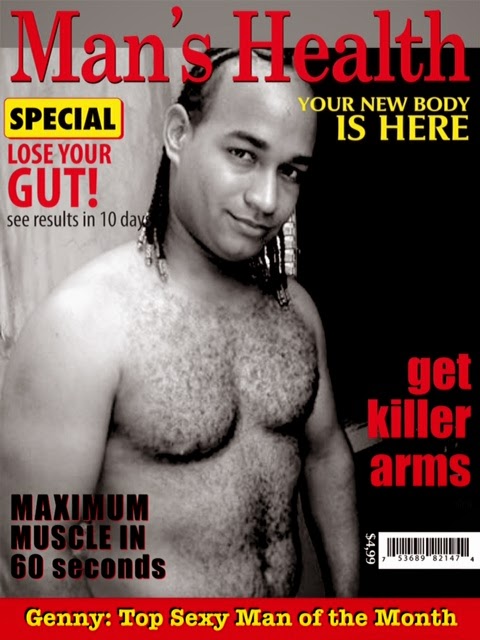
|
| Ecuador's President Rafael Correa, speaks during a interview with The Associated Press in Portoviejo, Ecuador, Sunday, June 30, 2013. Correa said he had no idea Snowden’s intended destination was Ecuador when he fled Hong Kong for Russia last week. He said the Ecuadorean consul in London committed “a serious error” without consulting any officials in the capital, Quito, when the consul issued a letter of safe passage for Snowden. |
PORTOVIEJO,
Ecuador (AP) -- Edward Snowden is "under the care of the Russian
authorities" and can't leave Moscow's international airport without
their consent, Ecuadorean President Rafael Correa told The Associated
Press Sunday in an interview telegraphing the slim and diminishing
possibility that the National Security Agency leaker will end up in
Ecuador.
Correa portrayed Russia as entirely
the master of Snowden's fate and said Ecuador is still awaiting an
asylum request from Snowden before deciding its next moves.
Russian
President Vladimir Putin has distanced himself from the case since
Snowden arrived in Moscow last week, insisting the 30-year-old former
NSA contractor remains in the transit zone of the capital's Sheremetyevo
Airport and that as long as he has not legally entered Russia, he is
out of the Kremlin's control.
At the same
time, the Kremlin said Sunday that it will take public opinion and the
views of human rights activists into account when considering Snowden's
case, a move that could lay the groundwork for him to seek asylum in
Russia.
"This is the decision of Russian
authorities," Correa told the AP during a visit to this Pacific coast
city. "He
doesn't have a passport. I don't know the Russian laws, I
don't know if he can leave the airport, but I understand that he can't.
At this moment he's under the care of the Russian authorities. If he
arrives at an Ecuadorean Embassy we'll analyze his request for asylum."
Last
week, several members of Russia's Presidential Council for Human Rights
spoke out in support of Snowden, saying he deserved to receive
political asylum in the country of his choice and should not be handed
over to the United States. And a handful of protesters picketed outside
the Moscow airport in what appeared to be an orchestrated demonstration
on Friday, holding signs reading "Edward, Russia is your second
motherland" and "Russia is behind Snowden."
Putin
spokesman Dmitry Peskov told Ekho Moskvy radio that while Snowden is
not Russia's concern, the Kremlin is aware of the viewpoints of Russian
experts and representatives of human rights organizations.
"Public
opinion on the subject is very rich," Peskov said in the radio
interview. "We are aware of this and are taking it into account."
Correa
said he had no idea Snowden's intended destination was Ecuador when he
fled Hong Kong for Russia last week. He said the Ecuadorean consul in
London committed "a serious error" by not consulting officials in
Ecuador's capital when the consul issued a letter of safe passage for
Snowden. He said the consul would be punished, although he didn't
specify how.
Analysts familiar with the
workings of the Ecuadorean government said Correa's claims that the
decision was entirely Russia's appeared to be at least partly
disingenuous. They said they believed Correa's administration at first
intended to host Snowden, then started back-tracking this week when the
possible consequences became clearer.
"I think
the government started to realize the dimensions of what it was getting
itself into, how it was managing things and the consequences that this
could bring," said Santiago Basabe, an analyst and professor of
political sciences at the Latin American School of Social Sciences in
the Ecuadorean capital, Quito. "So it started pulling back, and they'll
never tell us why, but I think the alarm bells started to go off from
people very close to the government, maybe Ecuador's ambassador in
Washington warned them about the consequences of asylum for Snowden."
Correa
said Snowden must assume responsibility if he broke U.S. laws, but
added the broader legitimacy of Snowden's action must be taken into
consideration. He said Ecuador would still consider an asylum request
but only if Snowden is able to make it to Ecuador or an Ecuadorean
Embassy to apply.
The U.S. is seeking the
former NSA contractor's extradition for leaking secret documents that,
among other things, detail U.S. surveillance of international online
activity. On Sunday, German magazine Der Spiegel reported that
classified documents taken by Snowden also revealed U.S. spies had
allegedly bugged European Union offices.
Correa
never entirely closed the door to Snowden, whom he said had drawn vital
attention to the U.S. eavesdropping program and potential violations of
human rights. But Correa appeared to be sending the message that it is
unlikely Snowden will ever end up in Ecuador. He repeatedly emphasized
the importance of the U.S. legal process and praised Vice President Joe
Biden for what he described as a courteous and appreciated half-hour
call about the Snowden case on Friday.
He
similarly declined to reject an important set of U.S. trade benefits for
Ecuadorean exports, again a contrast with his government's unilateral
renunciation of a separate set of tariff benefits earlier in the week.
"If
he really could have broken North American laws, I am very respectful
of other countries and their laws and I believe that someone who breaks
the law must assume his responsibilities," Correa said. "But we also
believe in human rights and due process."
He
said Biden had asked him to send Snowden back to the United States
immediately because he faces criminal charges, is a fugitive from
justice and has had his passport revoked.
"I
told him that we would analyze his opinion, which is very important to
us," Correa said, adding that he had demanded the return of several
Ecuadoreans who are in the United States but face criminal charges at
home.
"I greatly appreciated the call," he
said, contrasting it with threats made by a small group of U.S. senators
to revoke Ecuadorean trade privileges. "When I received the call from
Vice President Biden, which was with great cordiality and a different
vision, we really welcomed it a lot."
Ecuadorean
officials believe Russian authorities stymied the country's efforts to
approve a political asylum application from the former NSA systems
analyst, according to government officials with direct knowledge of the
case.
Those officials said Ecuador had been
making detailed plans to receive and host Snowden. One of the officials
said Russia's refusal to let Snowden leave or be picked up by Ecuadorean
officials had thwarted the plans. The officials spoke on condition of
anonymity because they weren't authorized to discuss the case by name.
One
of the officials said Snowden had intended to travel from Moscow to the
Ecuadorean capital of Quito. The official said Ecuador had also asked
Russia to let Snowden take a commercial flight to meet Foreign Minister
Ricardo Patino in Vietnam or Singapore, where Patino was on an official
trip.
The Russians rejected all of Ecuador's
requests to let Snowden leave Moscow, or to let an Ecuadorean government
plane pick him up there, the official said.
Asked Sunday about those accounts, Correa responded, without elaborating, "We don't have long-range aircraft. It's a joke."
Snowden's
path to Ecuador would have gone through Cuba, which said little about
the case all week, including whether it would have allowed him to use
its territory to transit.
Cuban leader Fidel
Castro praised Correa's rejection of U.S. trade pressure, expressing his
"sympathies" for the Ecuadorean leader in a Sunday editorial in the
state press.




















